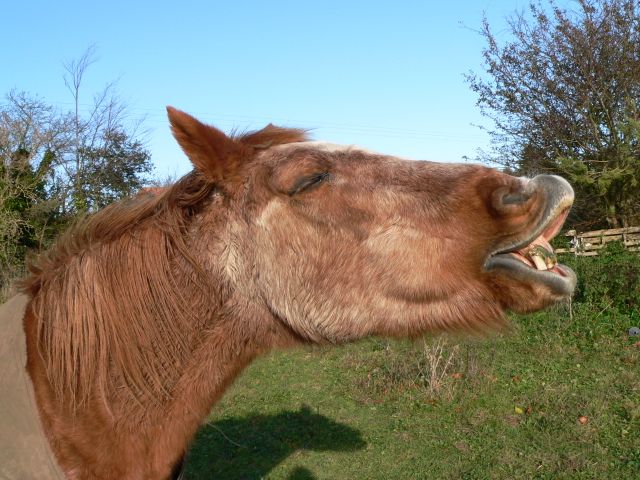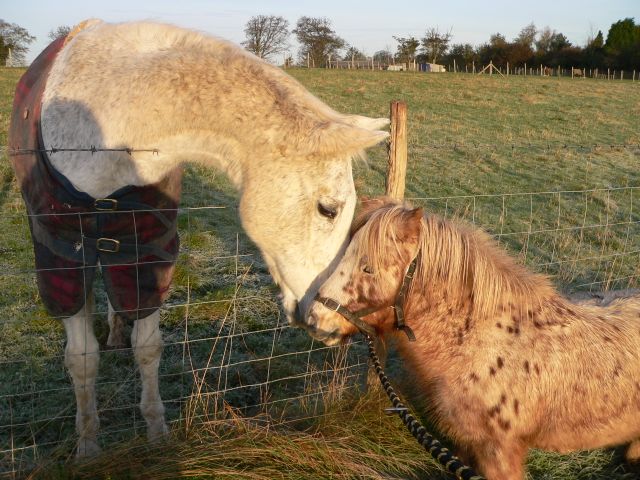Translate This Page
Human activities with regard to animals and their implications (and why we should stop them)
Horse riding
Horse riding, just like keeping pets, is a controversial subject. Naturally we're against the exploitation of horses for racing: every year, during races and training, numerous horses die or suffer injuries and have to be put down. http://www.horsedeathwatch.com and https://horseracingwrongs.com/killed-in-action-2015/
One reason that race horses cannot be saved when they break a leg, is that they have been bred for speed. That means that their bones are lighter, so although they are very strong, when they do break, they tend to shatter. This can cause damage to the soft tissues such as blood vessels, tendons and nerves which can make recovery impossible. http://www.theweek.co.uk/62872/why-do-they-shoot-horses-with-broken-legs
In addition, many of the thousands of foals born every year are not good enough to race and have to be disposed of, just like the thousands that reach the end of their careers. http://www.animalaid.org.uk/h/n/CAMPAIGNS/horse//1263//
Horse racing is just another business and as we've seen elsewhere, animal welfare is often a low priority when it comes to making money. http://www.animalaid.org.uk/h/n/CAMPAIGNS/horse//1263//
But what about people who keep horses as pets? Photos by Steven Franks

We are not in favour of riding horses: we oppose coercive
methods of training and the use of whips and spurs and bits to
control horses. Although the bit looks innocuous it is actually a
means of inflicting pressure and pain; according to a peer-reviewed
article in the Journal of Equine Veterinary Science, their use
"...constitutes a welfare problem, a hazard to health, and a
handicap to performance."
http://www.bitlessbridle.com/pathophysiology.pdf
Horse riders make various claims about the horse's need to be ridden: for exercise or for the horse's entertainment or simply because in the owner's view it loves being ridden. The first two do not require someone to sit on the horse, while the latter is impossible to prove. Riders claim that a rider who weighs only 75 kg is trivial for a horse that weighs 5-600 kgs. However, in the first place, a horse's back is not designed to carry a load, so a rider interferes with a horse's natural stance and gait. Secondly, when the horse is moving and its hooves impact the ground, the deceleration means that the effect of the weight is amplified. It's just like when you're standing still with a laden rucksack on your back there is much less strain on your joints and ligaments than when you're running and jumping with it. In fact, a study in Germany took X-rays of the backs of 295 horses and only 8.5% showed no abnormality. https://www.pdf-archive.com/2014/09/23/xraysalterationonspinal/xraysalterationonspinal.pdf
The horse is an animal that evolved to live freely with other horses in large enough areas for them to roam freely and eat whenever they wanted. We don't think that it's right to deprive them of this just for their owner's occasional pleasure. https://issuu.com/nevzorovhauteecole/docs/atlas?e=1606737/4036489
World Horse Welfare and the Eurogroup for Animals have published a report on the number of equines in the EU and what they are used for and how they are treated. http://www.worldhorsewelfare.org/Removing-the-Blinkers

- (Intensive) Animal farming and slaughter for meat/organs and other animal products like dairy products and eggs
- (Intensive) Animal farming (Mammals, Birds and Reptiles) for their skin (leather) and fur
- (Intensive) Animal farming for wool
- (Intensive) Goose farming for down
- Fishing and fish farming
- Circuses, Zoos and Marine Parks
- Animal testing and animals used in medical or veterinary universities
- Hunting, canned hunting and trophy hunting
- (Cruel) Animal Sports like bullfighting and other fiestas, cockfighting, horse racing, greyhound racing, sled dogs racing, pigeon racing, pig wrestling, rodeos etc.
- Pets
- Horse and pony riding
- The use of animals in films
- Zoophilia
- Anti-speciesism and climate change
- What can you do?
